Looking for the heroes behind unicorns, revealing the truth about power investment, welcome to pay attention to the "Investment Hall of Fame" of the Entrepreneurship State. These unicorn catchers have cast Mobike, ofo, Didi, Xiaomi, MOMO, Zhihu, Kuaishou, etc. This article is the 22nd report.
On April 17, Huitongda announced the completion of the 4.50 billion RMB financing invested by Alibaba Group. As an investor earlier than A******** Zhiqiang, co-founder and chairperson of Shengjing Netlink Group, believes that Huitongda’s "industrial router model" has realized the sharing of stock traffic through SaaS tools, products, communities, etc., and has "empowered" rural 80,000 small B (small merchants) in a true sense.
Shengjing Netlink has become China’s largest innovation and entrepreneurship service platform, and has also grown into China’s largest global fund of funds. As of the end of last year, it has invested more than 10 billion yuan in the top 60 technology venture capital funds in China, the United States and Israel. And this time, Alibaba’s investment in Huitongda will explore new rural new retail samples through cooperation.
In the retail market of more than 30 trillion level, with the national rural revitalization strategy entering the golden age of development, giants represented by Ali and JD.com have already entered the rural market, but in the past few years, there has been no breakthrough. Why did Ali invest heavily in Huitongda? What are the profound effects of the rural e-commerce ecological model built by Huitongda on the future industrial Internet?
On April 18, Pioneer State interviewed Peng Zhiqiang, co-founder and chairperson of Shengjing Networks Group, and some of his sharp views are as follows:
1. Why is it more and more difficult to do e-commerce now? Because traffic is too expensive, the increment is basically gone. Why do BAT go offline to "buy, buy, buy"? Because their online battle is over, they go to grab offline traffic. So from the perspective of the era of stock traffic, the model of Huitongda is of broad enlightenment – based on offline and fragmented traffic, to achieve its value reconstruction.
2. There is a special core to empowering, it needs to have SaaS. Why do many B to B trading platforms do transactions, but the value of the company is not released? Because these platforms do not have a set of SaaS to serve and empower those small B.
3. SaaS is dead; BaaS is here (Business-as-a-Service); "SaaS is the foundation of BaaS" – if you don’t have a SaaS, say you want to build an "industrial router", that’s selling concepts.
Peng Zhiqiang, Co-founder and Chairperson of Shengjing Network Group
The following is the content of the conversation:
Talking about the "industrial router" model
Entrepreneurship: As an important investor, what do you think of the rural e-commerce ecosystem model built by Huitongda?
Peng Zhiqiang:We have direct investment (Huitongda), and the fund of funds has also been invested through Huaxing and Shunwei. The main reason is to be optimistic about its (Huitongda) business model, which we call the "industrial router model". In fact, Zeng Ming (Chairperson of Alibaba Group Academic Committee and Dean of Education at Lakeside University) once called this type of model the S2b2c model, and he believes it is a particularly important business model in the next few years. Our philosophy has similarities, but there are also new upgrades.
The industrial router is a new type of vertical platform, which has the characteristics of the traditional platform model, but in a broader sense, it is a new platform based on the sharing economy empowering. The so-called sharing-based means that it is not its own monopoly, but fully mobilizes the subjective initiative of all stakeholders of the entire platform, and even in a certain sense allows the other party to earn more, and the platform earns less. So the "industrial router" is to use the model of the best efficiency and the lowest cost to maximize the efficiency of all parties.
Specifically to Huitongda, it has united 80,000 rural "husband and wife stores" across the country, and then empowered them through tools, products, finance, communities and other means to achieve sharing. We think this is called "empowering industrial community", which is a new business logic. Different from urban e-commerce, this model well solves the needs of rural residents in terms of consumption. This is a business model suitable for the characteristics of rural e-commerce.
Entrepreneurship: Why did Ali choose to invest in Huitongda?
Peng Zhiqiang:The reason why Ali will invest in it (Huitongda) is also because in the field of "new countryside", Huitongda basically does not lose at all with giants such as Ali and JD.com.
The formation of the "empowering industry community", whether it is doing B to B, SaaS or joining, why is it actually very difficult to do? And Huitongda is now a profitable company, which is almost unimaginable in the traditional e-commerce field. For example, JD.com, when it reaches a GMV (gross merchandise volume) of over 100 billion, it still loses a mess. Why can Huitongda achieve this business logic? Because it is shared traffic, that is, the traffic of 80,000 "husband and wife stores" is already there. Huitongda allows these traffic to be shared, and then empowers it to improve later, so we believe that it represents a feature of the new business era – Internetization based on stock traffic.
Why is it more and more difficult to do e-commerce now? Traffic is too expensive, and the increment is basically gone. Why do BAT go offline to "buy, buy, buy"? Because their online battle is over, they go to grab offline traffic. So from the perspective of this era characteristic of stock traffic, the model of Huitongda is of broad enlightenment – based on offline and fragmented traffic, to achieve its value reconstruction.
In fact, it is also the offline and fragmented traffic that is underestimated – this is the "ant hero". This has a big background – in China, there may be tens of millions of "wife and wife stores" served by Huitongda, which means that whoever can unite these small stores can realize a huge commercial value.
In fact, connecting this kind of small shop or trader model, many B to B trading platforms are doing it, such as looking for steel mesh, etc., which is for bulk commodities; while Zhongshang Huimin is for small shops, but why are we more optimistic about the business model of Huitongda? Now there are several ways to do B to B: one is the self-employment model, that is, I sell things by myself, and this road will become more and more difficult; the other is to do matching, I don’t do it myself, I do matching for many small shops and traders, but after matching, I find that I can’t make money, and people don’t need to pay you, because your added value is very low. So self-employment has its own hardships, and matching has its own difficulties.
Doing B to B transactions has always meant that these companies are slow to develop, and they don’t seem to know where to go.
Entrepreneurship: Shengjing Networks entered earlier than Ali, and made an investment decision quickly at that time?
Peng Zhiqiang:That’s right.We made this decision very quickly because of another larger judgment. I told Huitongda at the time: You are the 7-Eleven of rural China.7-Eleven is also one of our industrial routers. We think it is the benchmark of the industrial Internet and the global benchmark. Why do you say it (Huitongda) is the "7-Eleven of the countryside"? Now we say "husband and wife store", we call it "the nerve endings of society". Its essence is "the nerve endings of society". This "nerve endings" use the "brain" to affect and transmit. If it is too far away, it will do it by itself. So no matter how Japan develops, its "nerve endings" are very powerful. The 80,000 "husband and wife stores" served by Huitongda are the "nerve endings" of 80,000 rural areas. Its power cannot be defeated by e-commerce or direct sales.
Entrepreneurship: What is the core logic of the "industrial router model"?
Peng Zhiqiang:The underlying core of the business logic of the "industrial router" is actually two: one is b2f (b refers to small merchants, and f refers to small supply side), which efficiently connects the "nerve endings" such as the stock of small shops and traders with the supply side; the other logic is that the interaction between merchants and customers should be Internet-based, which is the basic condition for explosive power. For example, Huitongda’s brother company Kid King, its first stage is to be self-operated, and it is very leading in the direction of interaction with users such as membership.
Why can Huitongda quickly enter the second stage – the industrial router stage? This is because it was a five-star electrical appliance at the beginning, it sold electrical appliances, and it knew how to sell them.
If you just do a simple docking, it is "matching", which is worthless. Why "industrial routers" are valuable is because they can deeply empower b and f. If you have never done it, and you are not proficient in this field, how can you empower others?
The small merchants represented by b are small today, not necessarily small in the future; individual small, not necessarily small together. This is our understanding of the logic of b2f. The difference with Zeng Ming’s S2b2c: his S is uppercase, emphasizing the platform; we put b2f lowercase, b in front, emphasizing small merchants, stock traffic, and put it in the core position of this model. Through its efficient interaction and integration with the supply side, we feel that this is a fundamental and replicable business logic based on the Industrial Internet.
In fact, whether it is self-operated or a platform, self-operated must be tested, and the scale must depend on the platform. Back to why Huitongda can do it well, it has sold electrical appliances and engaged in self-operated, and it is in a fierce competitive environment, so it has experience and "martial arts", and can use its "martial arts" to teach these small shops how to empower and grow.
Talk about "empowering" and "sharing"
Entrepreneurship: how does huitongda empower small b?
Peng Zhiqiang:On the one hand, it shares the stock flow of 80,000 "husband and wife stores", not self-operated; it is also different from matching, it is a comprehensive and deep empower. "Empower" is easy to say, but there are not many people who can really do it. For example, when Huitongda does empower, in addition to SaaS tools, interaction, etc., it will give 80,000 "husband and wife stores" 20,000 activities and training a year, activities every day, various management and business training, activities and training are a means and carrier of empower.
The core of empowering is that it requires SaaS.Why do many B to B trading platforms do transactions, but the value of the company has not been released? Because these platforms do not have a set of SaaS to serve and empower those small B’s. For small B’s, if they only do transactions on these platforms, it is probably no different from doing distribution in the IT industry more than ten years ago, because the IT industry relied on channels and distribution to distribute goods in the early years, which was a sewer pipe. But SaaS is different. It solves the internal management of small B’s, upstream procurement, interaction, etc. More importantly, it solves the interaction with users, based on Internet-based interaction. Huitongda’s 80,000 "husband and wife stores", between these stores and farmers, has been connected to about 67 million farmers, these farmers’ interaction, in the past, small B will not, there are no tools, now Huitongda has given SaaS tools, you can go to these users to do Internet interaction, coupons, cards, activation and so on These routines have.
Entrepreneurship: after empowering small b, how to let small b and its users interact?
Peng ZhiqiangThe "industrial router" model, the very core reason why we are optimistic about it is that after empowering small B, the interaction between small B and its users will increase linearly, which is Zeng Ming’s S2b2c, where S is Supply, that is, the concepts of supply, supply side, and supply chain.
Some differences between us and his S2b2c. On the one hand, the explosion of business value of a company like "Industrial Router" largely empowers the interaction between small b and its customers. For example, Huitongda helps small shops connect 67 million farmers.
We believe that the merchant of small B, the customer he serves, may be a C, may also be a B, may also be a G (government), what is the core logic? We sometimes joke that the largest platform in China today is the 1 million wine tables that open at the same time every night across the country, and these orders to G and to B are discussed at different wine tables. From this perspective, why do we think the development of B2B e-commerce is not highly scalable? If you want to cross this table, it is impossible in this kind of marketing to B and to G, or you can only take a little bit. That is true for C, and it is true for B and G.
That is to say, we just want to help these merchants. They may be a store, a trader, or a service provider. Their efficient interaction with the upstream supply side, and more importantly, their efficient interaction with their customers and users, is actually an industrial chain. So for Huitongda, to empower, there is an IT system support, which is SaaS. Without the support of this IT system, empower can easily be a "duckweed", and it will be gone when the wind blows. Just now I mentioned that these B to B trading platforms are no essential difference from our distribution in the IT industry more than ten years ago, that is, as long as they are 5 yuan more expensive than others, others will not play with them. But Huitongda is different. Under the SaaS system, it can continue to cost 5 yuan more.
Entrepreneurship: This will not fly.
Peng Zhiqiang:The cost is too high. The most important thing is that the operating data of the entire company, the data of interaction with users, and the data of interaction with the upstream are all in SaaS. It is a major decision for it (small b/merchant) to abandon the Huitongda system – the system migration cost is too high. In this case, it (Huitongda) is completely different from a B to B trading platform. On the other hand, there are many SaaS companies on the market now that have switched from software to SaaS. These SaaS companies were once a popular direction for investment, but now they will find it embarrassing how to make profits.
Entrepreneurship: Is it difficult to find a suitable business model?
Peng Zhiqiang:Because in China, objectively speaking, people are still not willing to pay too much for services, which is quite different from Salesforce in the United States. We believe that SaaS companies should comprehensively turn to become an "industrial router" company, that is, it should go to the transaction, not just a company that sells SaaS and collects service fees. Only go to the transaction end, like a trading platform, until the final transaction link.
Just like Huitongda, if it sells SaaS software to 80,000 "husband and wife stores" and tells the other party that a store charges you 10,000 yuan a year, such a company today has no commercial value. First, it is difficult for you to sell 80,000 stores; second, the development, maintenance and marketing costs may exceed 10,000 yuan. So Huitongda does not sell SaaS, it relies on transactions to eventually make money.
Entrepreneurship: Huitongda shares from it?
Peng Zhiqiang:It is currently the trading spread, but there are many possibilities for future profit models. Because when it comes to trading, there is a way to make money.
So we go with these few words: SaaS is dead; BaaS is here (Business-as-a-Service); "SaaS is the foundation of BaaS" – if you don’t have a SaaS, say you want to build an "industrial router", that’s selling the concept. But we have our own description of it – it can really empower small b, and to a certain extent, it can even be locked, relying on SaaS to lock.
Entrepreneurship: According to the logic of the "industrial router", he also invested in many other projects.
Peng Zhiqiang:Following this logic, we invested in Song Xiaocai, Dongmei Trading, Doubao Network, Pet Know, etc., all of which are such "industrial routers" logic. In fact, in thousands of categories, there is a model for making industrial routers. The core logic of such an industrial router, the first is shared stock traffic – this is a very core logic.
So the so-called "industrial router" model, the classic router model we are talking about now, its advantage is that it is a kind of stock traffic, it is a kind of small B traffic, it does not take the traffic and distribute it to small B.
Entrepreneurship: So it doesn’t necessarily buy traffic, but existing traffic.
Peng Zhiqiang:Yes. Ali develops its own traffic for small B, "industrial router" – like Huitongda’s model uses small B’s traffic to help it improve efficiency, so this model is more extensive and universal.
Entrepreneurship: A bit like Didi, taxi stock traffic is available.
Peng Zhiqiang:Yes, use existing traffic. So using existing traffic, and offline fragmented traffic, becomes widely replicable, otherwise it is too difficult. So the first keyword is "sharing". The second keyword is "empower", which is different from Didi in this regard. Didi does not emphasize empowering small B merchants.
Entrepreneurship: under the deep empowering of Huitongda, what is its future growth logic?
Peng Zhiqiang:In the case of deep empowerment like Huitongda, it has great commercial value for these mom-and-pop stores, including introducing more products to them. There are "product empower", "IT empower", "management ability empower" and so on. When Huitongda operates to this stage, it is completely different from others in this field and is moving in the direction of "industrial empowerment community". Even it has largely reassured these small b and merchants that it does not force all your purchases to go from the platform. Its GMV now has 200 billion, but the real account from it is only more than 20 billion. The logic is to make you comfortable. If a merchant feels that they are being controlled, they will definitely not dare to use your SaaS, or they will have concerns, which will reduce the efficiency of the entire process.
But this kind of logic ultimately depends on the industry, and it is not an enterprise. "Industrial routers" are ultimately the demands of a certain industry. For Huitongda, its future growth logic is very clear.
The growth logic of Huitongda, the monetization rate is more than 10% (GMV is 200 billion, and the purchase through Huitongda accounts for more than 20 billion). This monetization rate is possible to increase by more than 3 times in the future; in addition, it has 80,000 stores, and there are about 400,000 high-quality stores in China’s townships and towns. If it can reach 200,000, it is about 3 times. 3 times 3 is 9 times, that is to say, Huitongda is likely to have 9 times the commercial value growth space. This is just in the trading sector.
In the future, in the rural sector, it is the same as Ali’s "troika" logic – first do transactions, then do logistics and finance, isn’t this Ali in the rural sector? Isn’t this the "troika" of Ali in the new rural area? Then 10 billion valuation is not expensive, it is completely investable.
Entrepreneurship: Regarding the "industrial router", you said that you hope to empower many small B’s that are relatively scattered. To a certain extent, it is a kind of empowerment for human business. It can only be done if you understand human nature. What do you think of its relationship with people?
Peng Zhiqiang:This is indeed very important. In fact, many small B’s are suitable for him to be his own boss – whether it is called self-employed or large self-employed – because you can’t monitor, no matter how advanced technology is, you can’t monitor, and more importantly, the feeling he gives himself, it is a "nerve endings" level thing. So figure out when it is suitable to do company and platform. If it is a "nerve endings" type and interacts with users on a small scale, make it a small B (small business) and let him do it himself.
Like 7-Eleven, the first indicator for choosing franchisees is that the location is better, and the second indicator is that the franchisees operate by themselves. In this case, we first respect the laws of the economy, but in the end it is still considered efficiency and cost. For example, if a small store owner does it, and he hires someone to do it, the efficiency and cost are completely different. Working with a self-operated store of a large company, the efficiency and cost are different. Because business logic boils down to efficiency and cost. In this case, efficiency and cost are finished, and it is also in line with human nature, so let him be the boss himself.
Whether it is to be your own boss or to join, in fact, you will find out why McDonald’s franchise is successful? Why are most franchises in China unsuccessful? The core is that the truly successful franchise is based on its business logic of "letting the franchisee succeed". McDonald’s logic is that I make a "raw shop" run by myself into a "cooked shop" and then give it to the franchisee. What is most franchises in China? The core function of franchise in China is to share risks.
But the logic of "empower" is, I have to make you more successful. It doesn’t matter if you scale fast or slow, what matters is that I want to help you succeed. The ultimate goal of "industrial empowerment community" is to empower sharing, which is an underlying logic. This is a big difference I think compared to traditional to B’s.
Entrepreneurship: Do you think empowering is best?
Peng Zhiqiang:You have to be deep to be empowered, and empowering is deep, like we want to be able to do at 7-Eleven — and it’s been decades, but that’s 7,500 problems every two weeks, per store.
So why do we say "industrial router" more accurately, it is because the name "router" is liked by people as soon as they hear it, and the platform naturally has some characteristics of "router", but we are talking about empowering and sharing "industrial router", the word "empower" is particularly critical. And in the long run, empowering economies, like Huitongda, have higher certainty.
Entrepreneurship: What are the uncertainties of Huitongda?
Peng Zhiqiang:If Huitongda wants to become a hundred billion dollar company, it may need more challenges and breakthroughs to turn its vision of the future into reality. But the certainty that it will grow into a hundred billion yuan company first is very strong.
Entrepreneurship: What is the current position of Huitongda in the industry?
Peng Zhiqiang:Ali’s rural Taobao, including JD.com, wants to enter the new countryside, which is the big market in the future. But I think that the empowered sharing economy of Huitongda can be connected to 200,000 "husband and wife stores" in the future. If there are 200,000 "nerve endings", there must be this one in the "three-legged". What will happen to others, I don’t know; but I know it will exist. Or in other words, it is not because there is Huitongda, but because Huitongda has 200,000 "nerve endings", which constantly empowers these 200,000 "nerve endings". This kind of people’s mass line has its natural advantage in the new countryside.

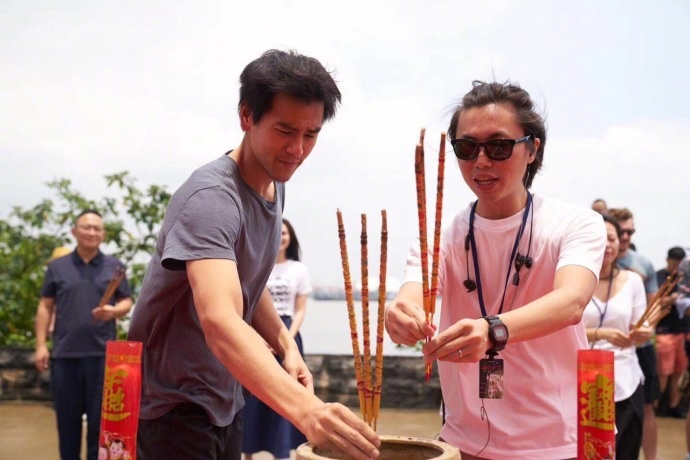
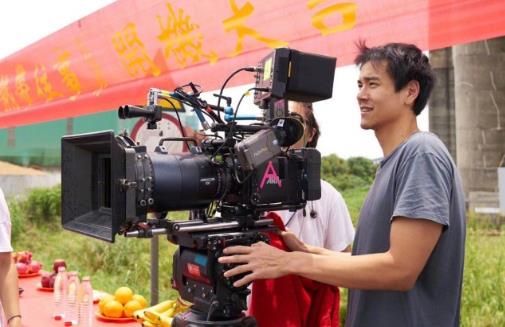
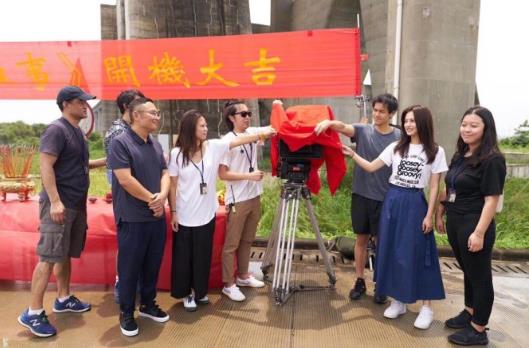



















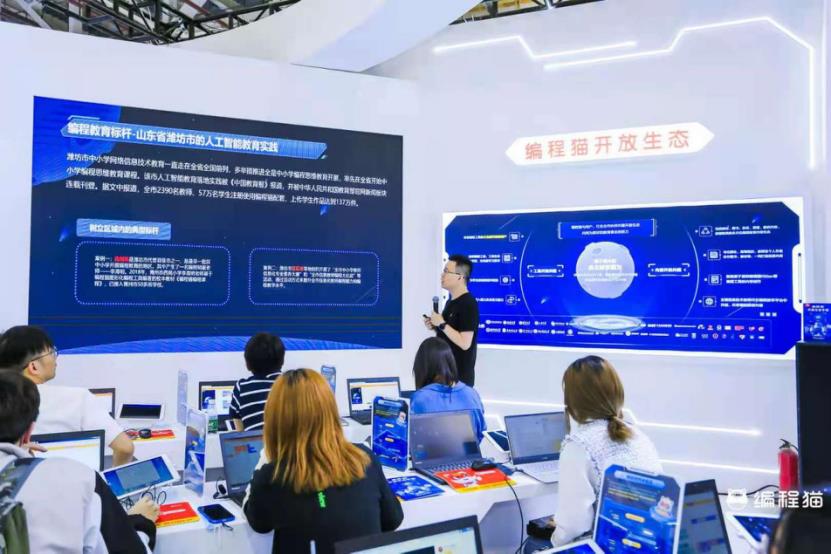
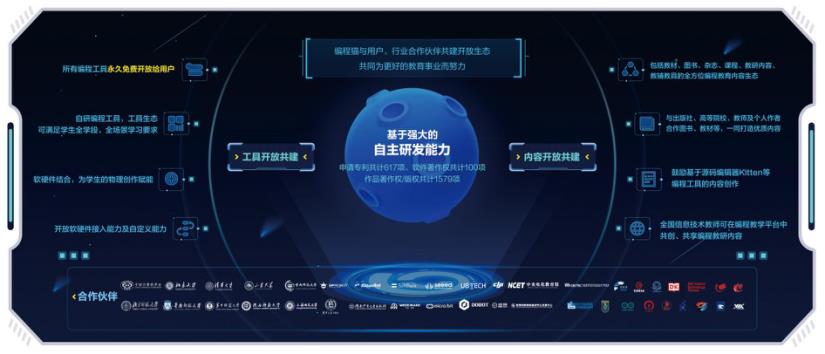
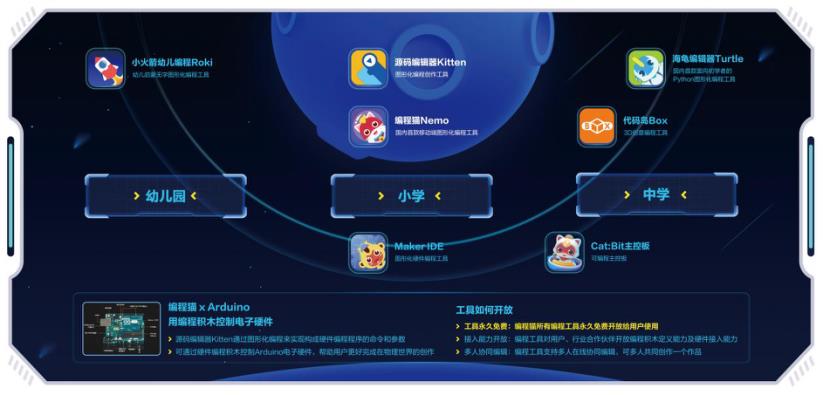
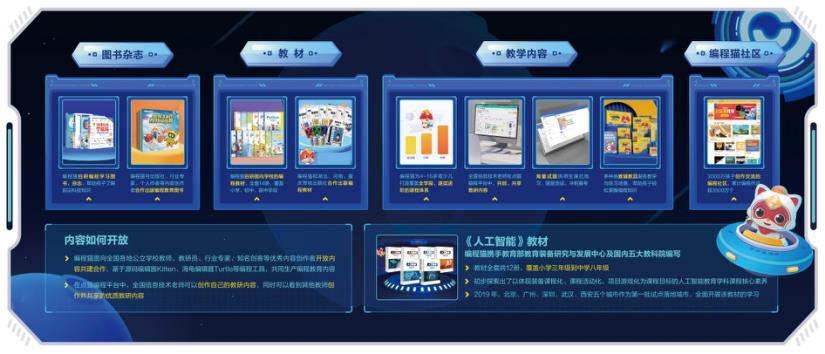
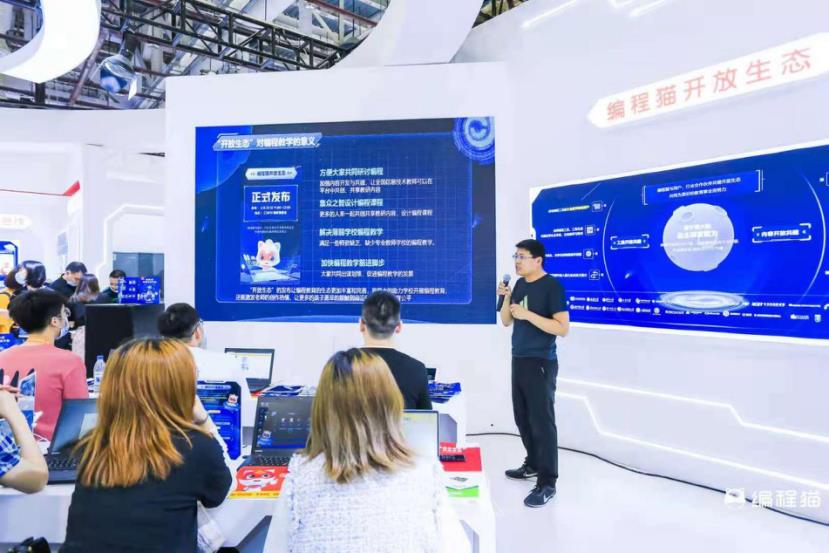



 News (Gao Jingyu/Wen) On June 13, the dark blue G318 was officially launched, with a total of six models, and the price range was locked between 175,900 yuan and 318,000 yuan. Its two-wheel drive air suspension version is equipped with air suspension + CDC + double fork arms, and the price is less than 200,000 yuan. According to official data, the order channel was opened for only 60 minutes, and the order has exceeded 3,000 units.
News (Gao Jingyu/Wen) On June 13, the dark blue G318 was officially launched, with a total of six models, and the price range was locked between 175,900 yuan and 318,000 yuan. Its two-wheel drive air suspension version is equipped with air suspension + CDC + double fork arms, and the price is less than 200,000 yuan. According to official data, the order channel was opened for only 60 minutes, and the order has exceeded 3,000 units.